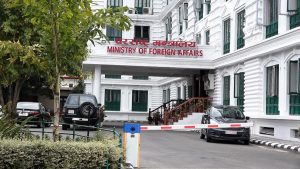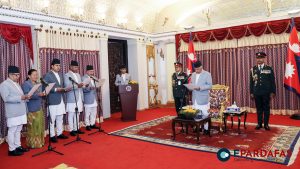
Why Did CIB Arrest Nepali Congress Lawmaker Sunil Sharma?
The recent arrest of Nepali Congress (NC) lawmaker Sunil Sharma by the Central Investigation Bureau (CIB) of Nepal Police has left the nation perplexed and seeking answers. The absence of immediate clarity regarding the grounds for his arrest has given rise to a web of speculation and intrigue, prompting many to question: Why is Sunil Sharma arrested?
Sharma, a political figure who secured victory in the November 22 election and represents Morang-3 in the House of Representatives, was taken into custody on Thursday. However, the exact nature of the allegations against him has not been officially disclosed by the authorities.
Sources within the Nepal Police have provided a glimpse into the situation, revealing that Sharma’s arrest is linked to an old case involving the alleged forgery of an educational certificate. The high-ranking police source disclosed that Sharma had purportedly manipulated his academic credentials, adding a marks to bolster his qualifications when the original grades fell short of the requirements for passing the +2 level.
Addressing the House of Representatives a few days prior, lawmaker Sharma had called for the resignation of Deputy Prime Minister and Home Minister Narayan Kaji Shrestha, along with Finance Minister Dr. Prakash Sharan Mahat, in connection with the ongoing gold smuggling investigation.
As the news of Sharma’s arrest reverberates across political, educational, and social circles, experts are debating the potential implications of these allegations. Questions about Sharma’s eligibility as a lawmaker and his integrity as a promoter of renowned educational institutions, such as Kathmandu Medical College and Nobel Medical College, have begun to circulate.
Observers are also using this incident to reflect on broader themes such as the transparency of elected officials and the role of integrity in public service. The arrest underscores the complex intersection of politics and ethics, prompting discussions about accountability and the standards to which elected representatives should be held.













Comments